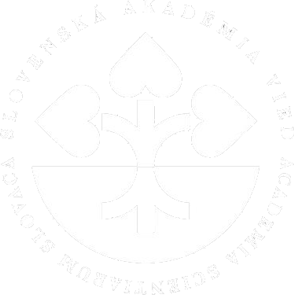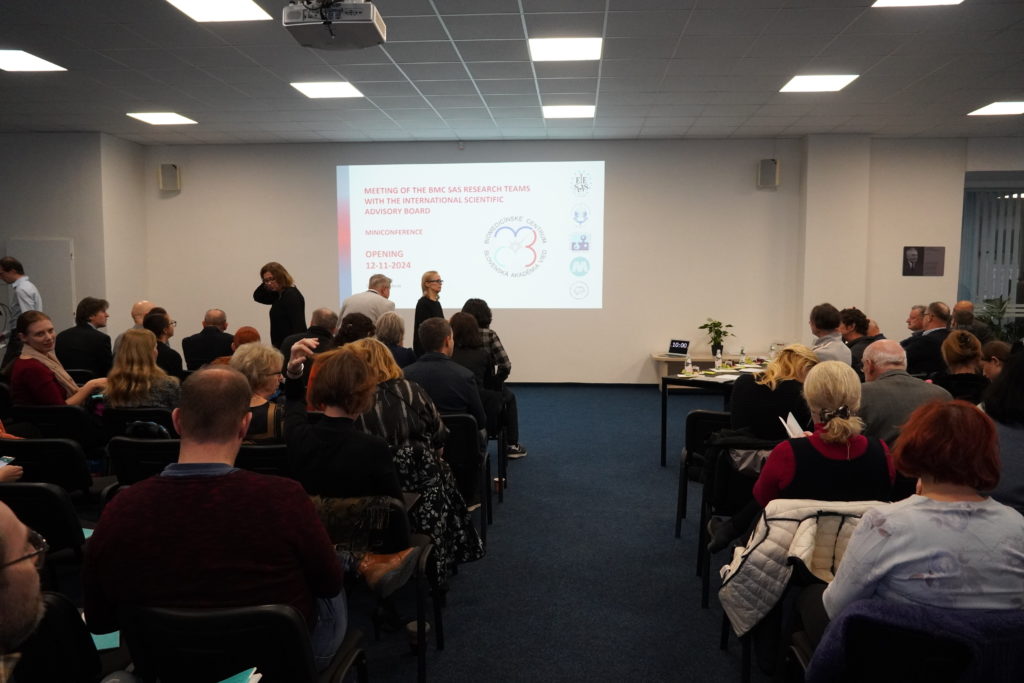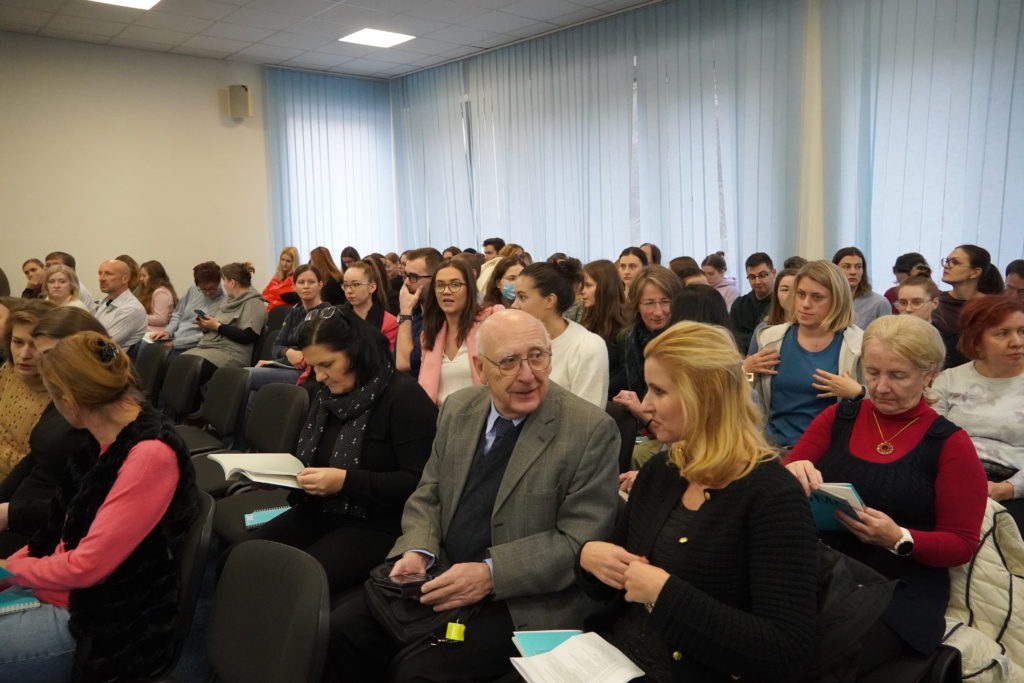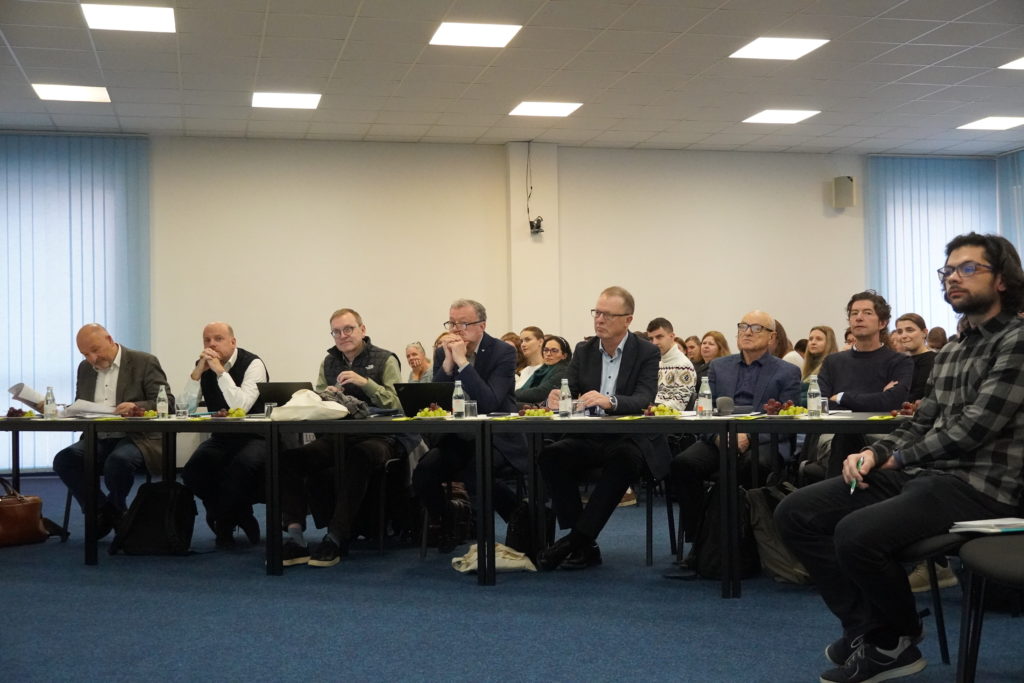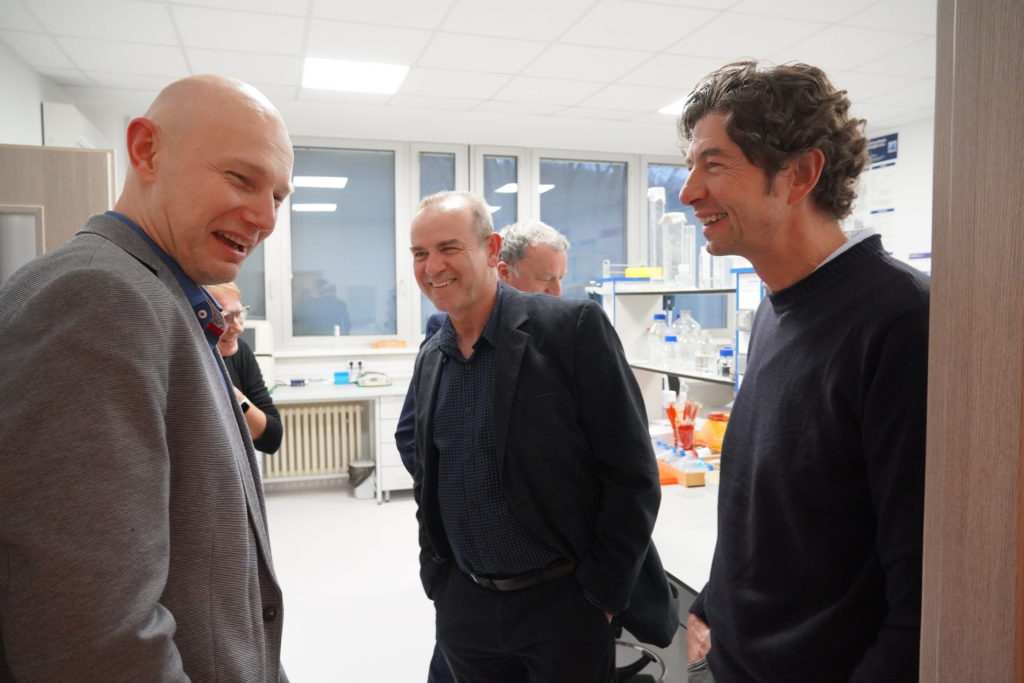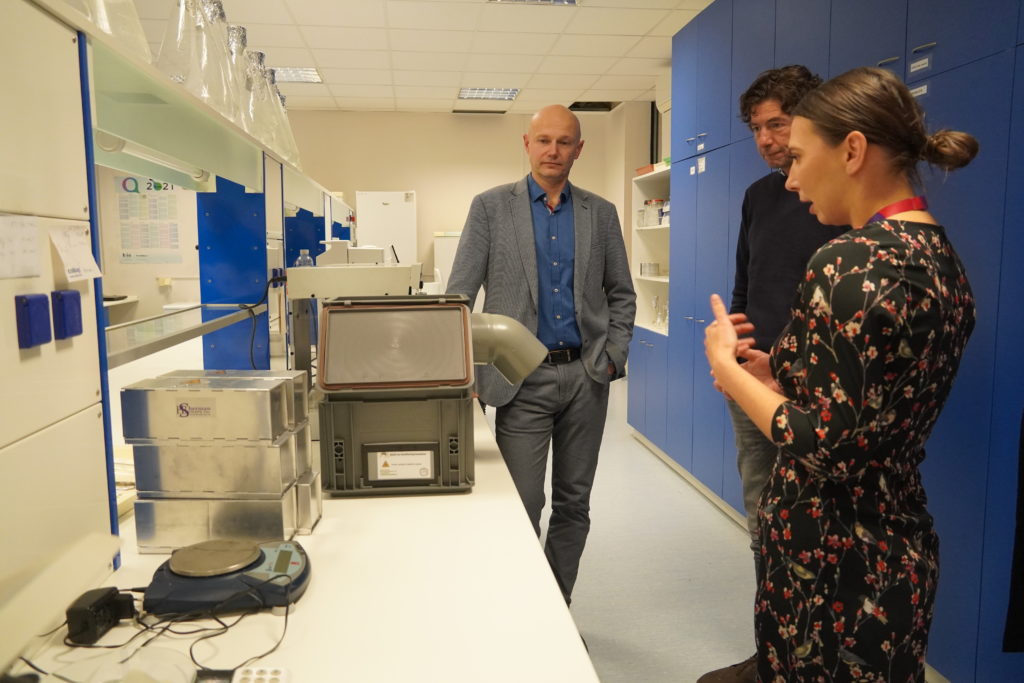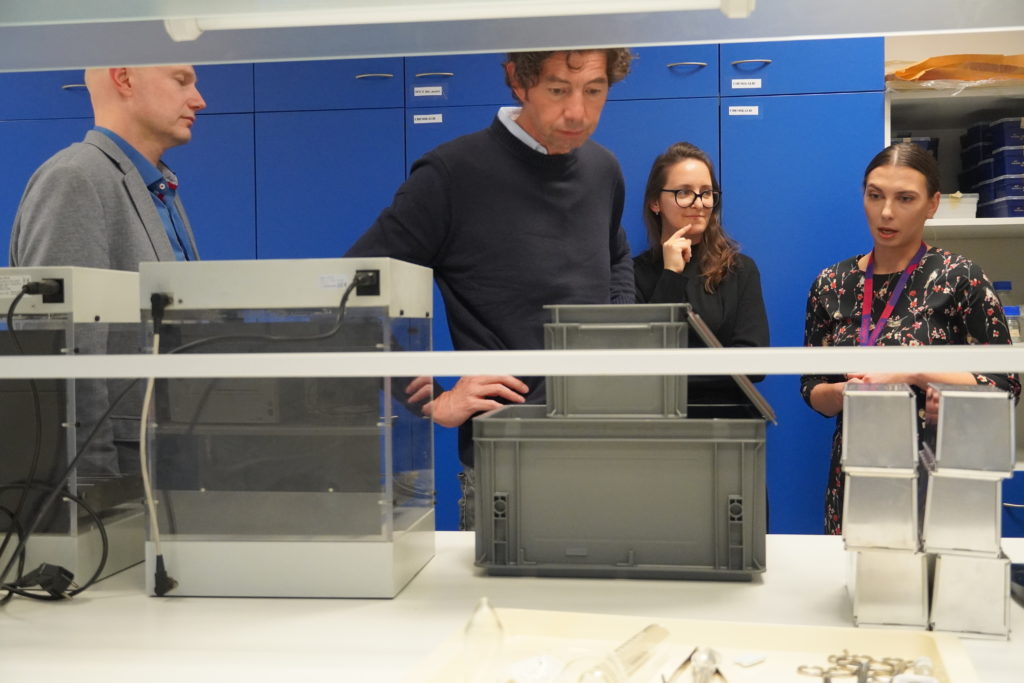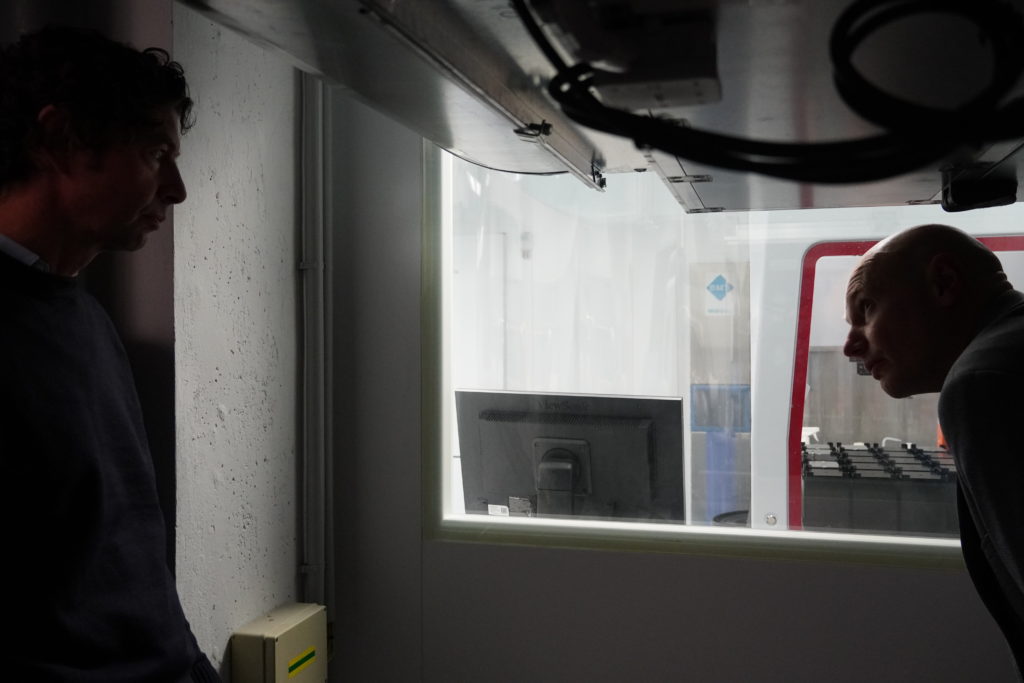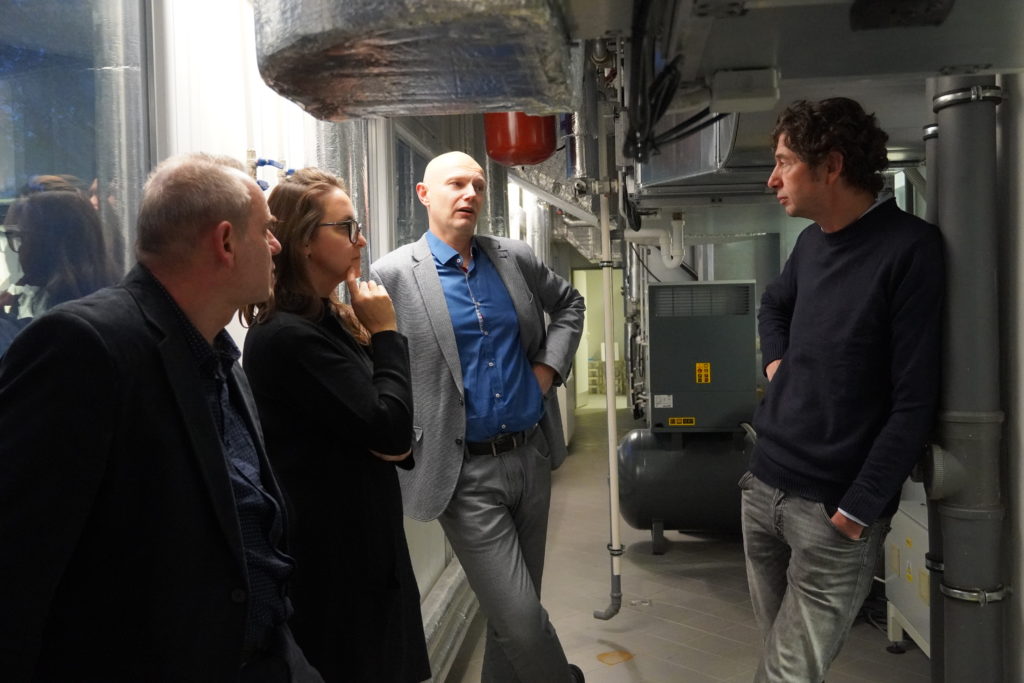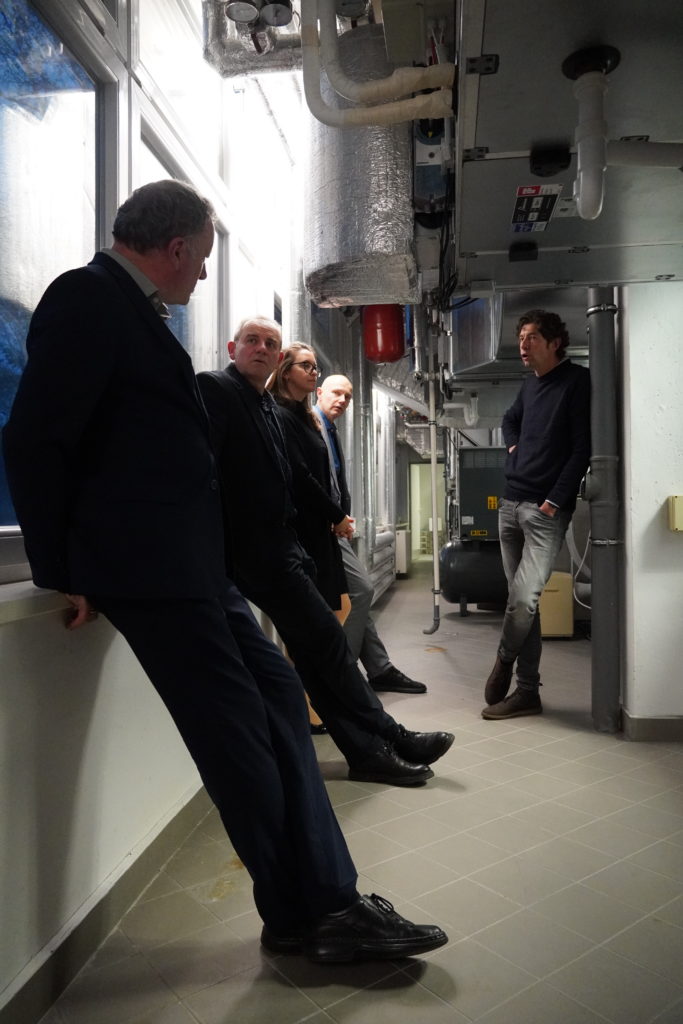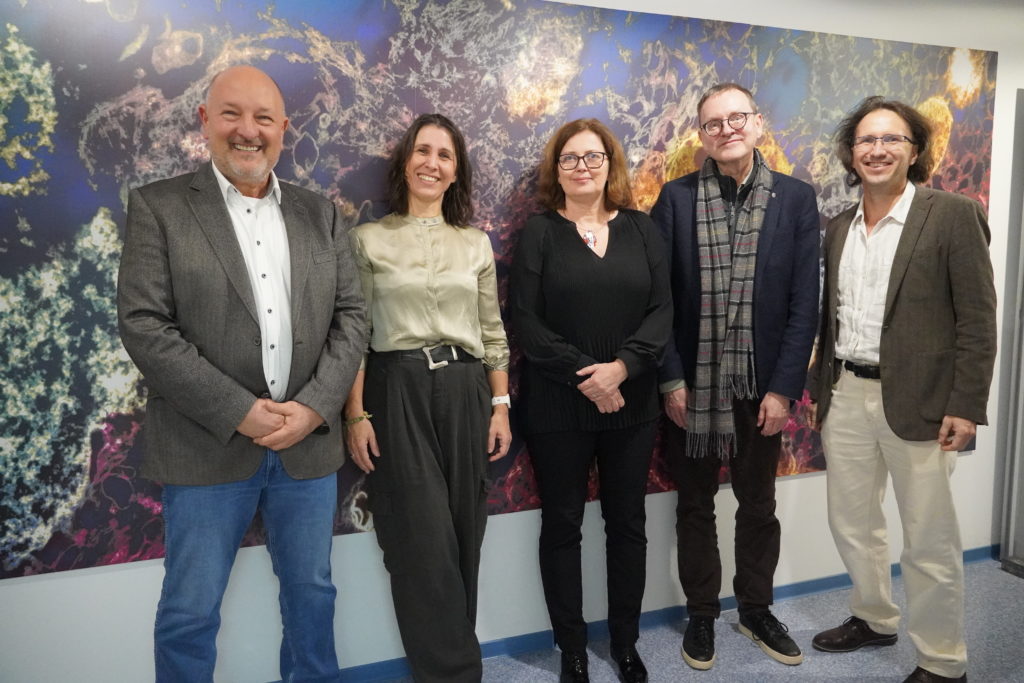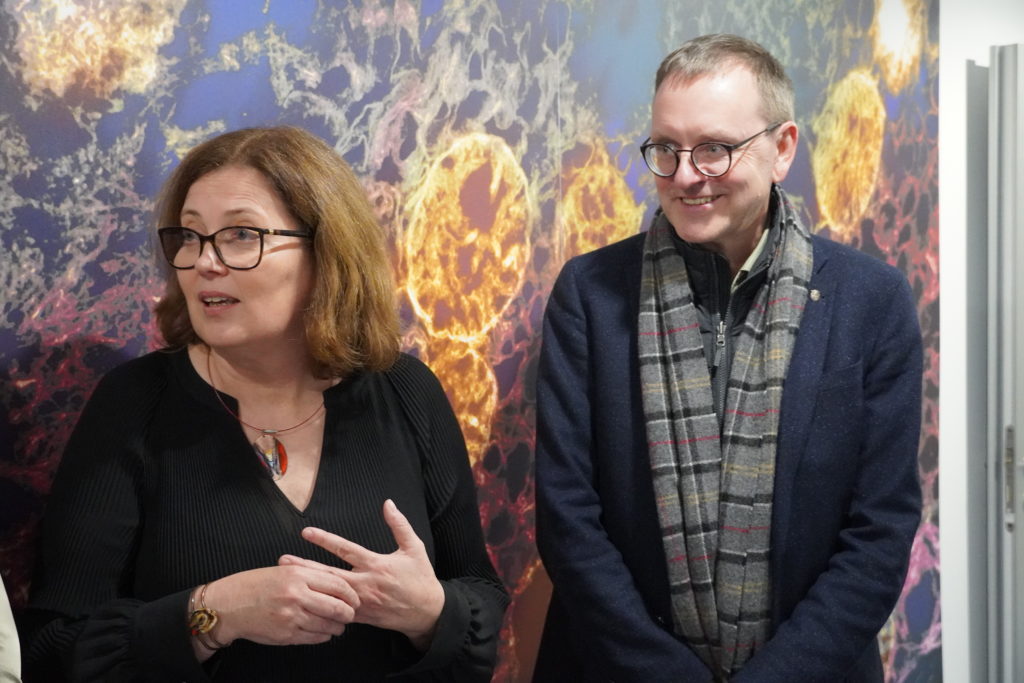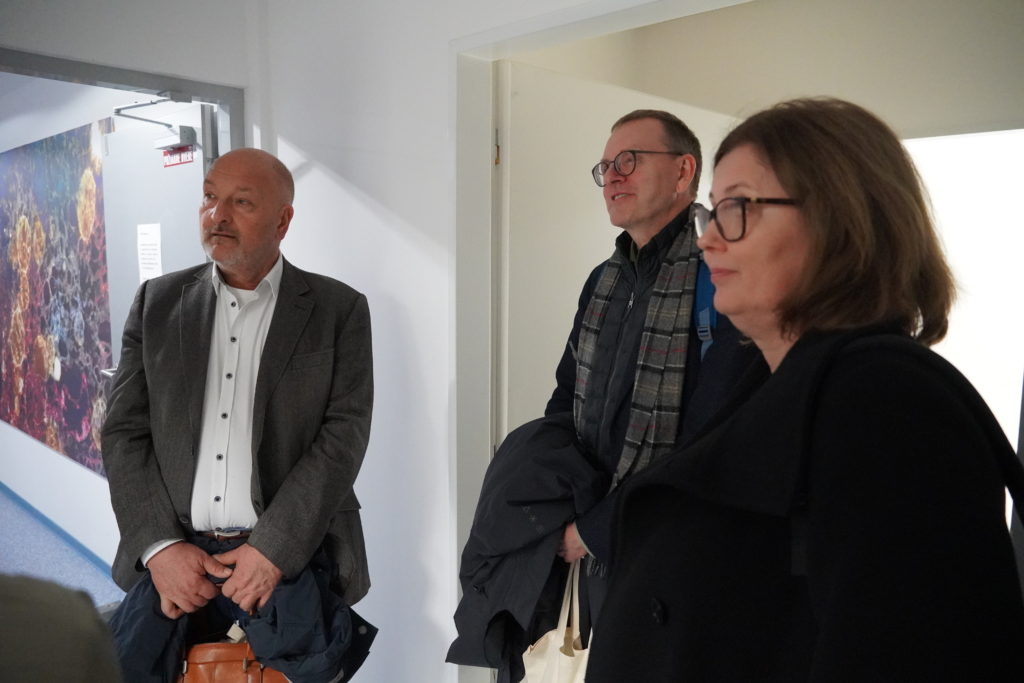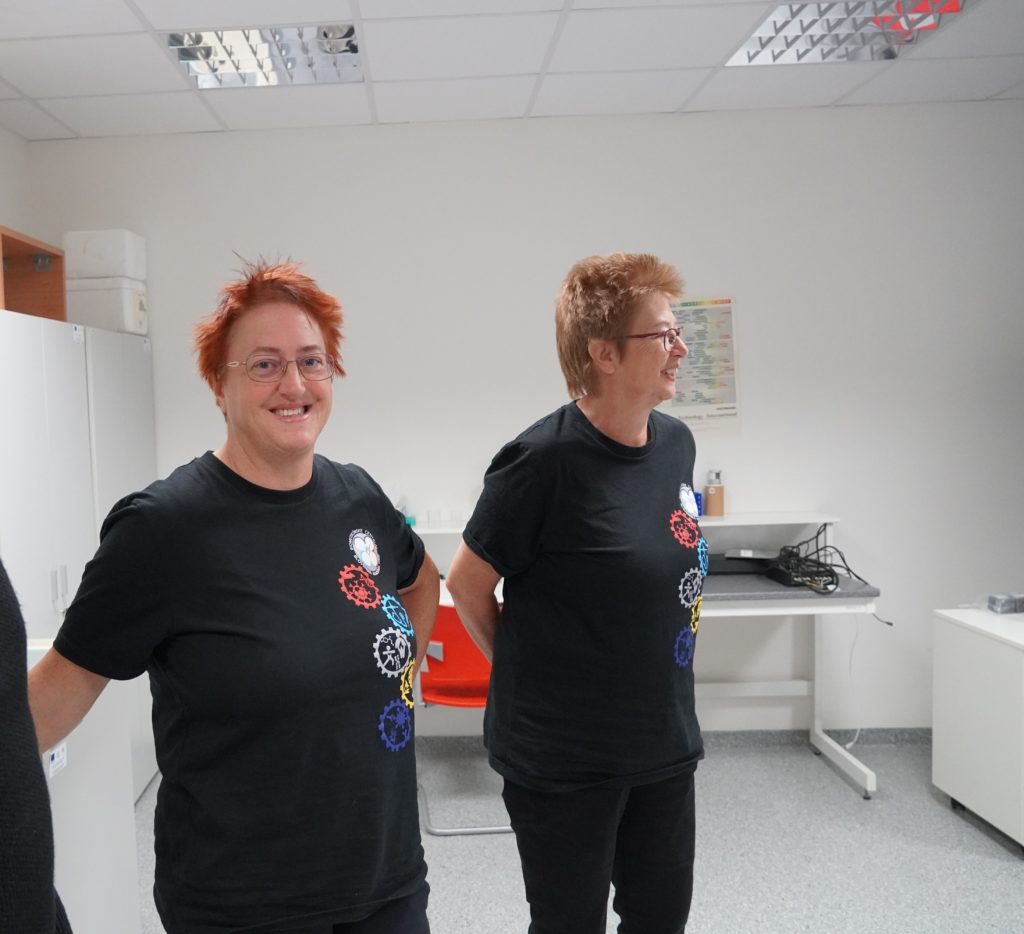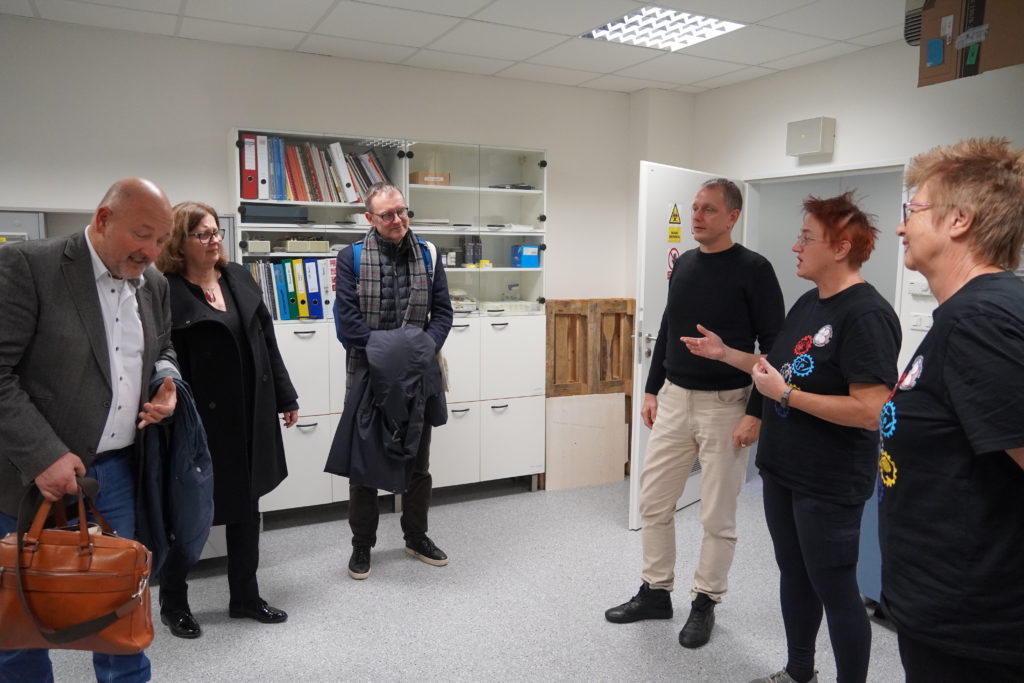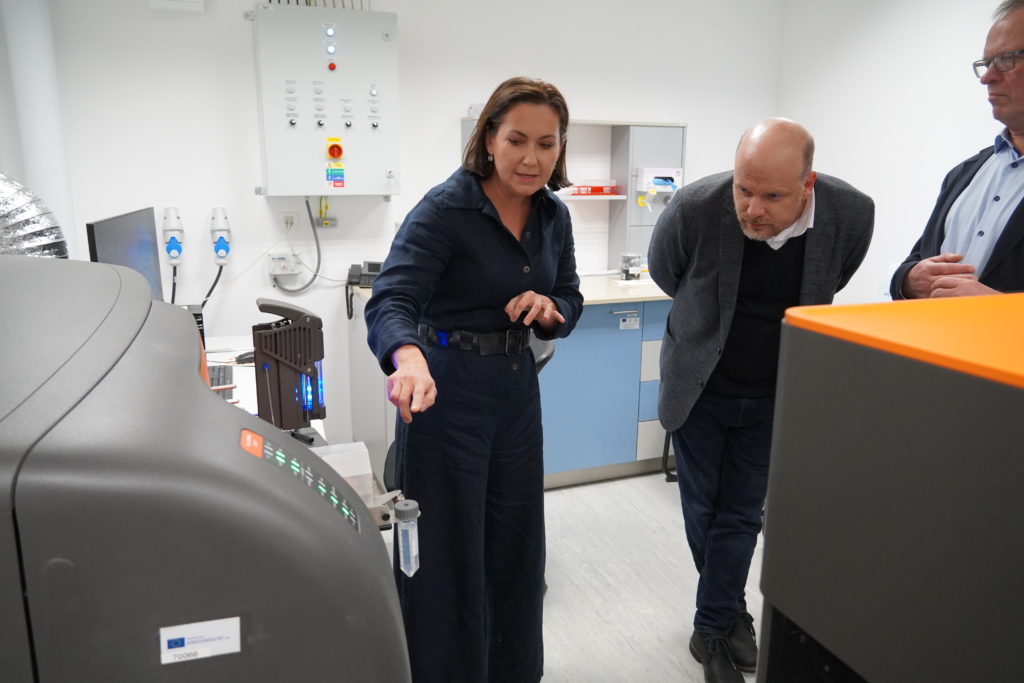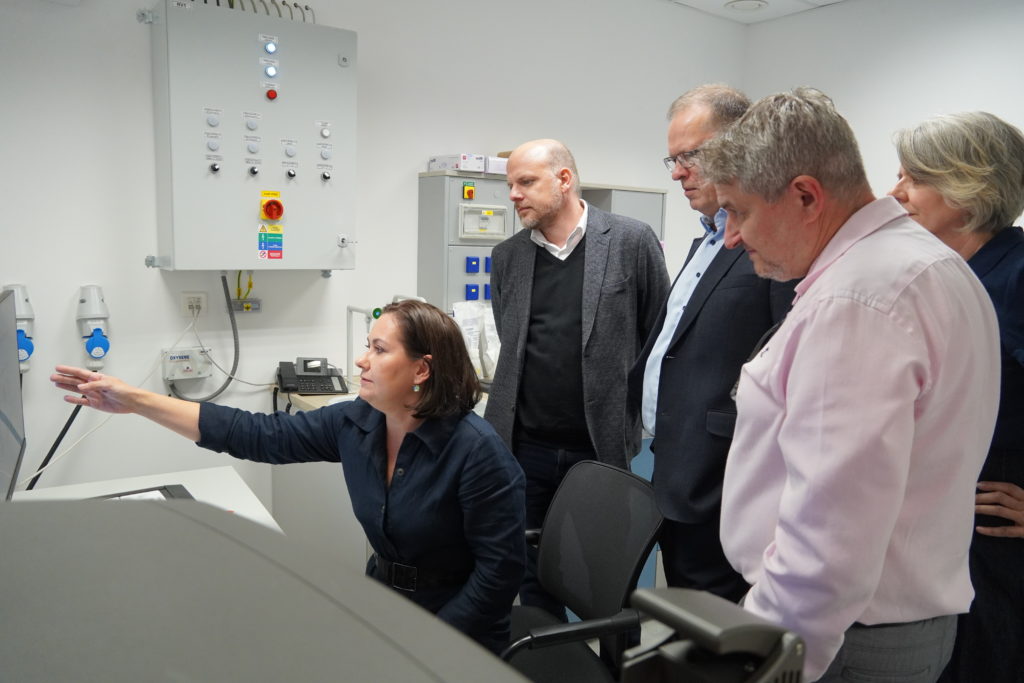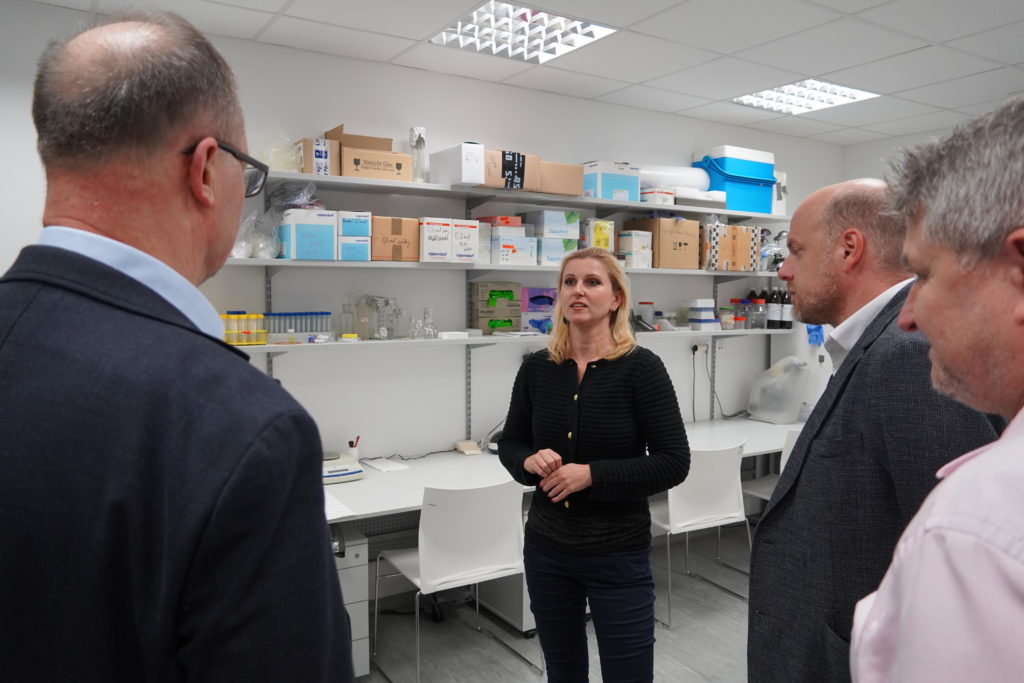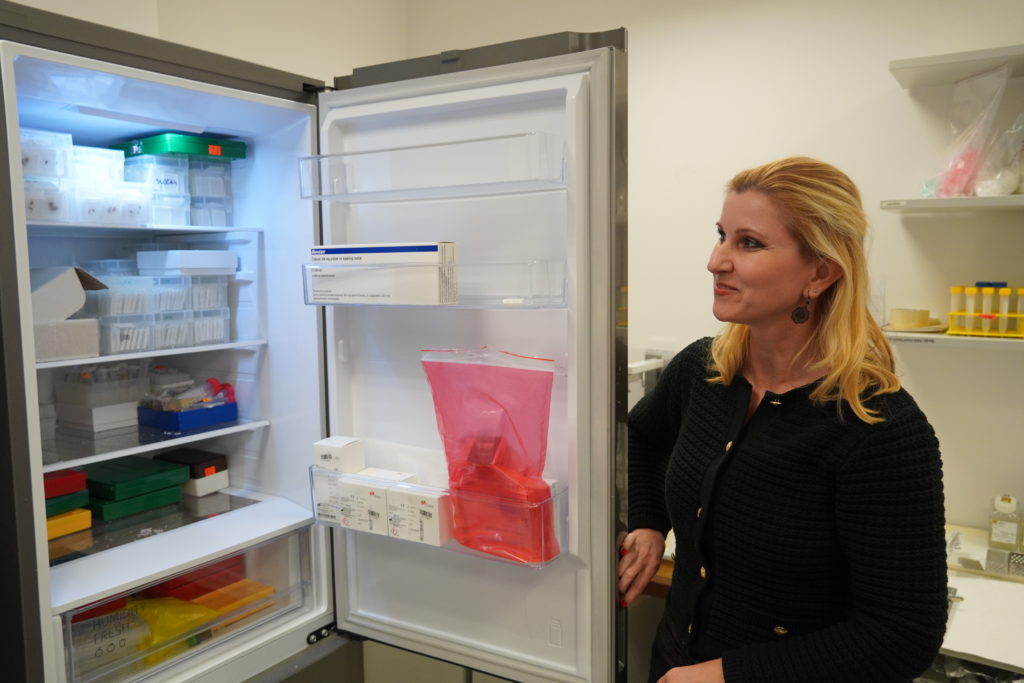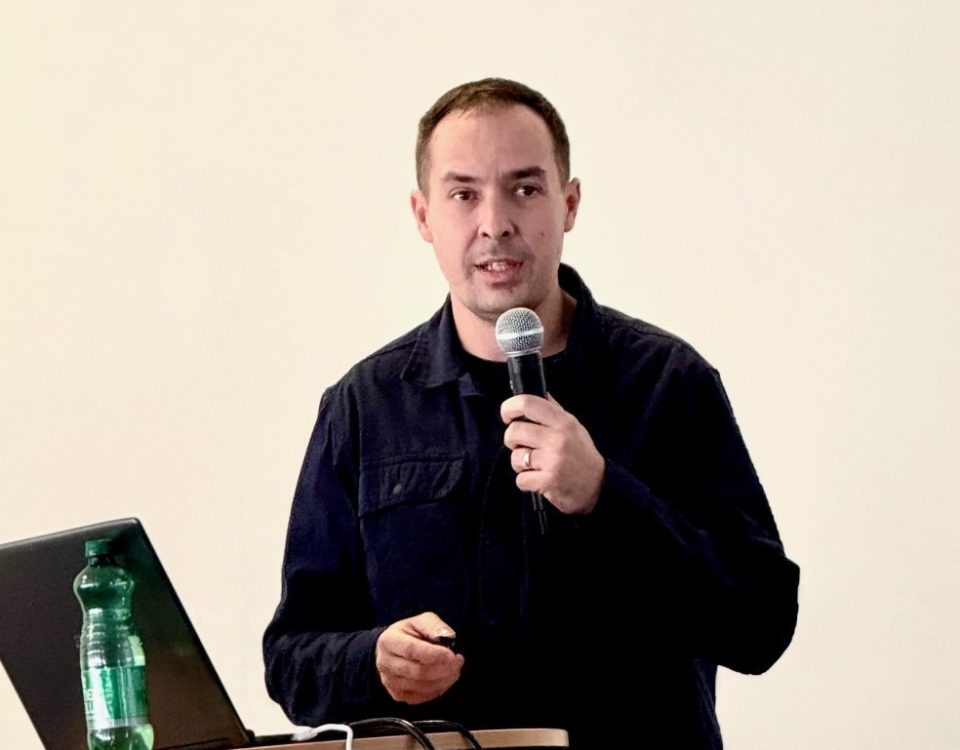This website uses cookies so that we can provide you with the best user experience possible. Cookie information is stored in your browser and performs functions such as recognising you when you return to our website and helping our team to understand which sections of the website you find most interesting and useful.
International Scientific Advisory Board evaluated BMC SAS research teams
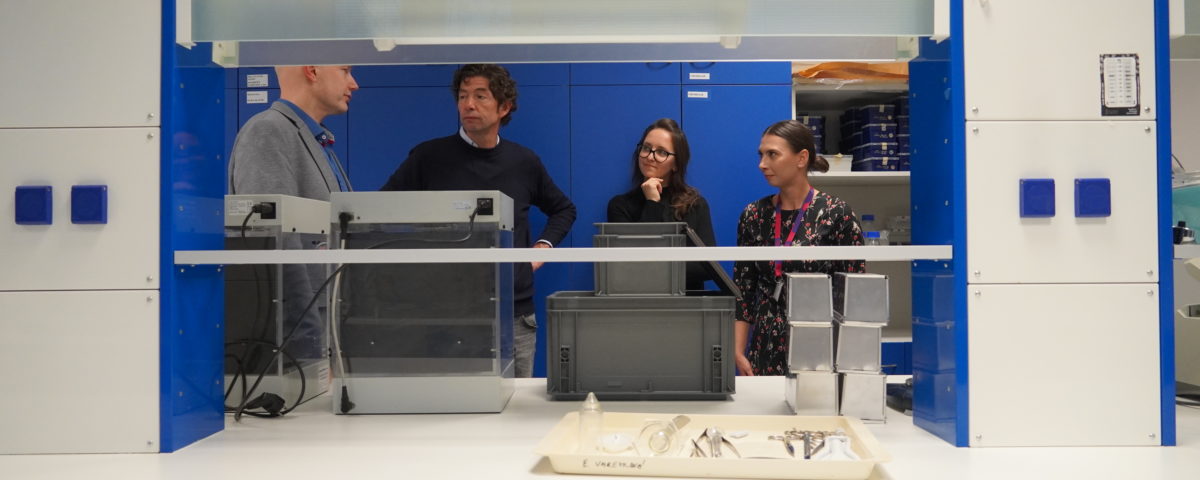
Visit of the International Advisory Board to the BMC SAS, visit to the laboratories. From right Dr. Viktória Čabanová, Dr. Ivana Nemčovičová, ISAB member prof. Christian Drosten and Dr. Boris Klempa.
On 12-13 November 2024, the Biomedical Center of the SAS, v. v. i. (BMC SAV) hosted eight international experts, members of the International Scientific Advisory Board (ISAB). The role of these renowned scientists, working in the research areas of the BMC SAS research teams, is to evaluate the research and societal activities of the BMC SAS and to provide recommendations for the development of the research teams and the BMC SAS as a whole.
The Director General, Professor Silvia Pastorek, sees the evaluation as a unique opportunity to gain an external perspective on the scientific and societal activities of BMC SAS.
“It will help us to update our strategy for the coming period and to capitalize more efficiently on our professional and human potential for the acquisition and practical application of new knowledge in the field of human disease research. Personal meetings with ISAB members have been an exceptional event for us and we greatly appreciate them giving us their expertise, experience and time,” says Professor Pastoreková.
At the beginning of September, all ISAB members were provided with background material prepared by the research team leaders. These included a description of the scientific focus and staffing structure, a selection of the most significant results and projects for the period 2019 to 2024, other significant activities with societal impact, and a vision for the coming period.
The first day of the event was devoted to a mini-conference with the participation of the academic community, where ISAB members heard brief presentations by the directors of the BMC SAS institutes and structured presentations by the leaders of 25 research teams classified according to the thematic areas into four panels: Oncology – Nanobiology, Endocrinology – Metabolism – Genetics – Physiology, Neuroscience and Virology – Microbiology – Immunology.
After the presentations, the panellists had a look into some of the laboratories, where they got acquainted with the working environment and the instrumental infrastructure of the BMC SAS. At the evening ISAB meeting, they discussed their first impressions of the presentations and started to formulate their comments and recommendations.
On the second day of the event, closed discussions were held by ISAB members for each thematic panel with the scientific team leaders and some of their collaborators. After the discussions, a short meeting with the directors of the BMC SAS institutes was held.
The ISAB members highly appreciated the commitment of BMC SAS to undergo the process of evaluation of the scientific teams, highlighted the level of its implementation and the excellent organization of the attendance event, which had a very intensive and challenging agenda. The results of the evaluation and especially the suggestions for qualitative development will be communicated to the scientific teams individually, while the ISAB will also provide recommendations for the BMC SAS as a whole and comment on systemic aspects of scientific research.
Cultivating high quality scientific research in the field of biomedicine with a significant impact on society is an ongoing priority of BMC SAS. One of the ways to fulfil this priority is to support the strengths and development opportunities that are taking shape not only at the level of the whole organisation, but especially at the level of individual research teams. Looking at the institution as a whole is not sufficient to identify the most promising research directions, nor is an analysis of scientometric data and project structure sufficient to reveal them fully. A more detailed picture is needed.
The current global research assessment initiatives DORA (San Francisco Declaration on Research Assessment) and CoARA (Coalition for Advancing Research Assessment) advocate an assessment based primarily on qualitative peer review, supported by the responsible use of quantitative indicators. The Alliance4Life consortium, which brings together leading researchers and universities from Central and Eastern European countries, takes the same view.
BMC SAV, as a founding member of Alliance4Life and signatory of CoARA, shares this view and sees the evaluation of scientific teams by foreign experts as the best way to get an independent view of their scientific performance and results.
Text: prof. RNDr. Silvia Pastoreková, DrSc., BMC SAS; E. Rybárová, BMC SAS
Photo: E. Rybárová, BMC SAS
- Členovia Medzinárodného poradného zboru. Zľava prof. Jan Konvalinka, prof. Toivo Maimets, prof. Jan Motlík, prof. Christian Drosten a Dr. Mathias V. Schmidt.
- Návšteva Medzinárodného poradného zboru v BMC SAV, minikonferencia.
- Návšteva Medzinárodného poradného zboru v BMC SAV, minikonferencia.
- Návšteva Medzinárodného poradného zboru v BMC SAV, minikonferencia.
- Členovia Medzinárodného poradného zboru. Zľava prof. Milan Macek, prof. Ondrej Slabý, prof. Alexander Pfeifer, prof. Jan Konvalinka, prof. Toivo Maimets, prof. Jan Motlík, prof. Christian Drosten.
- Návšteva Medzinárodného poradného zboru v BMC SAV, návšteva laboratórií. Sprava člen ISAB prof. Christian Drosten, prof. Jan Konvalinka, riaditeľ Virologického ústavu BMC SAV Dr. Juraj Kopáček, Dr. Jana Tomášková a Dr. Boris Klempa.
- Návšteva Medzinárodného poradného zboru v BMC SAV, návšteva laboratórií. Sprava Dr. Viktória Čabanová, člen ISAB prof. Christian Drosten a Dr. Boris Klempa.
- Návšteva Medzinárodného poradného zboru v BMC SAV, návšteva laboratórií. Sprava Dr. Viktória Čabanová, Dr. Ivana Nemčovičová, člen ISAB prof. Christian Drosten a Dr. Boris Klempa.
- Návšteva Medzinárodného poradného zboru v BMC SAV, návšteva BSL3 laboratória.
- Návšteva Medzinárodného poradného zboru v BMC SAV, návšteva BSL3 laboratória. Sprava člen ISAB prof. Christian Drosten, Dr. Boris Klempa, Dr. Ivana Nemčovičová a riaditeľ Virologického ústavu BMC SAV Juraj Kopáček.
- Návšteva Medzinárodného poradného zboru v BMC SAV, návšteva BSL3 laboratória.
- Návšteva Medzinárodného poradného zboru v BMC SAV, návšteva laboratórií. Zľava člen ISAB prof. Milan Macek, prof. Barbara Ukropcová, riaditeľka Ústavu experimentálnej endokrinológie Dr. Daniela Gašperíková, člen ISAB prof. Alexander Pfeifer a Dr. Jozef Ukropec.
- Návšteva Medzinárodného poradného zboru v BMC SAV, návšteva laboratórií. riaditeľka Ústavu experimentálnej endokrinológie Dr. Daniela Gašperíková a člen ISAB prof. Alexander Pfeifer.
- Návšteva Medzinárodného poradného zboru v BMC SAV, návšteva laboratórií. riaditeľka Ústavu experimentálnej endokrinológie Dr. Daniela Gašperíková a členovia ISAB prof. Alexander Pfeifer (v strede) a prof. Milan Macek (vľavo).
- Návšteva Medzinárodného poradného zboru v BMC SAV, návšteva laboratórií. Dr. Alexandra Zahradníková st. a Dr. Alexandra Zahradníková ml..
- Návšteva Medzinárodného poradného zboru v BMC SAV, návšteva laboratórií. Dr. Jana Jakubíková, členovia ISAB prof. Toivo Maimets (vpravo) a prof. Ondrej Slabý (v strede).
- Návšteva Medzinárodného poradného zboru v BMC SAV, návšteva laboratórií. Dr. Jana Jakubíková, členovia ISAB prof. Toivo Maimets (v strede), prof. Ondrej Slabý (vľavo) a vedúci Ústavu experimentálnej onkológie BMC SAV Dr. Miroslav Chovanec.
- Návšteva Medzinárodného poradného zboru v BMC SAV, návšteva laboratórií. Dr. Andrea Bábelová.
- Návšteva Medzinárodného poradného zboru v BMC SAV, návšteva laboratórií. Dr. Andrea Bábelová.





